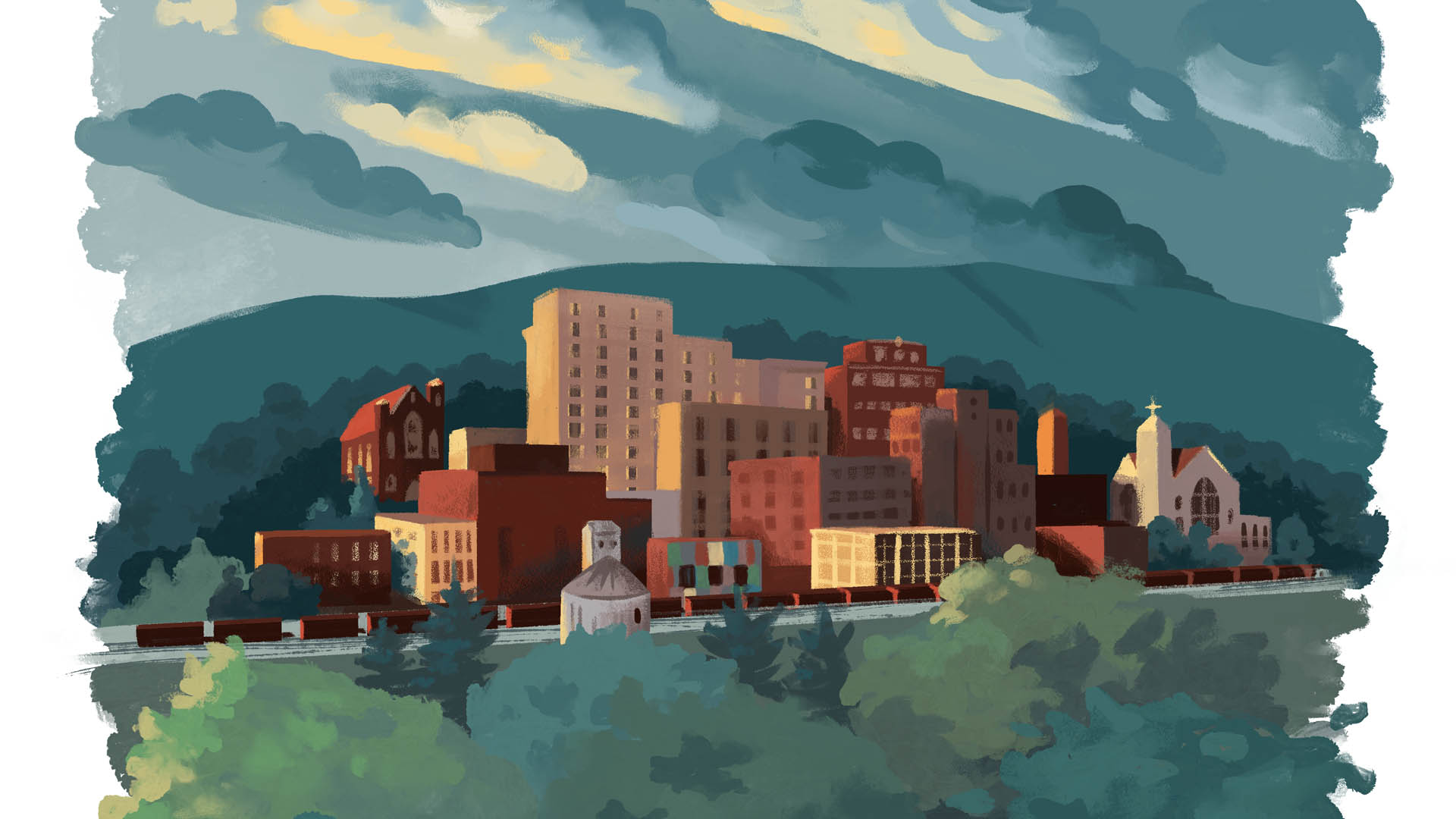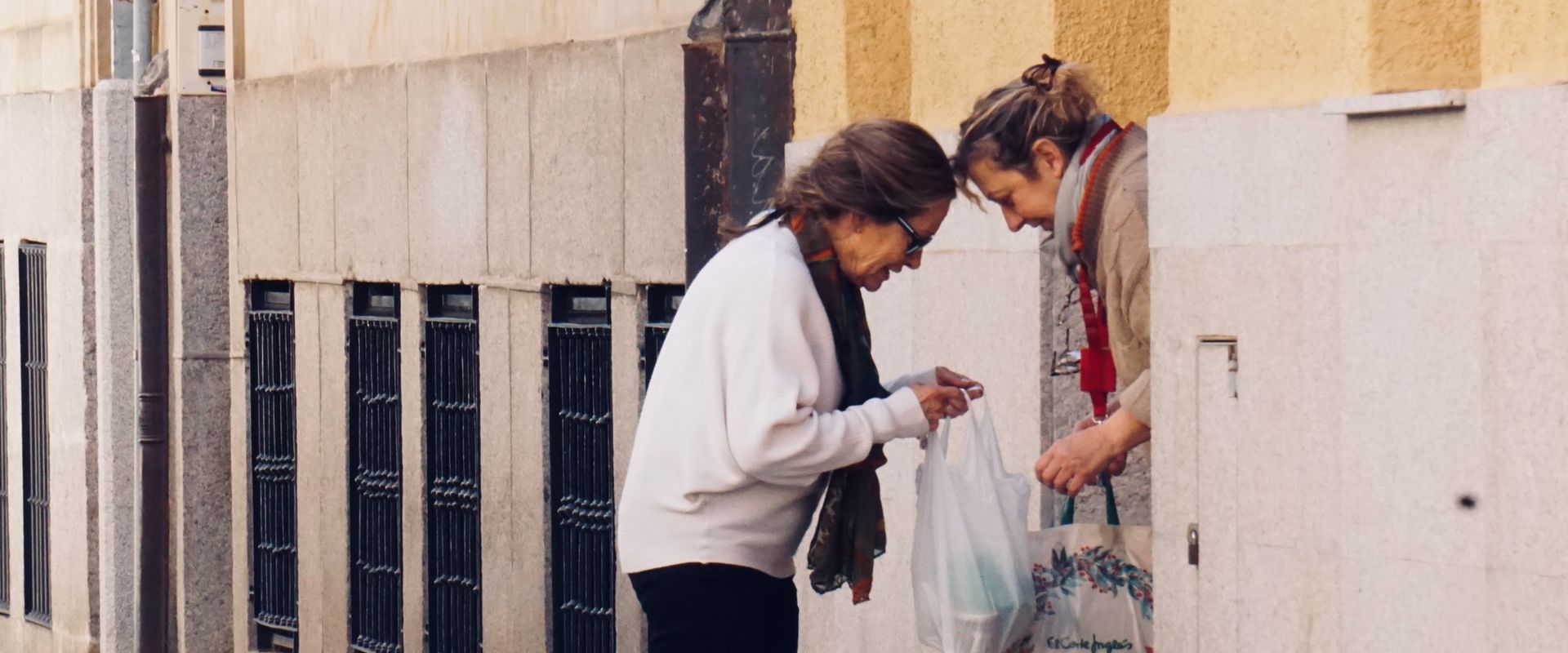Like many pastors, Heber Brown III visits congregants from Pleasant Hope Baptist Church in Baltimore when they’re in the hospital. But unlike most pastors, he’s doing something more than praying for and visiting people. Over the past five years Brown has mobilized more than two dozen area congregations into the Black Church Food Security Network (BCFSN) to provide what he calls a “soil-to-sanctuary” pipeline of healthy food for families living in “food deserts,” communities with limited access to fresh fruits, vegetables, and healthy grains.
Brown, a Baltimore native and third generation Baptist preacher, prefers the term “food apartheid” over food desert because the problem affects minorities more than whites and is rooted in historical and economic discrimination. In 2015, the Johns Hopkins Center for a Livable Future issued a study showing that 34 percent of African Americans in Baltimore City live in food deserts, compared to only eight percent of white residents. Not surprisingly, African Americans there also suffer from higher rates of diet-related illnesses such as diabetes, obesity, and high blood pressure.
Brown started addressing the issue by encouraging his flock to turn their manicured church lawn into a 1,500-square-foot garden. Congregants young and old responded enthusiastically. Within a couple years the modest garden produced more than 1,000 pounds of fresh produce annually. Initially, the church gave the kale, cukes, and tomatoes away for free, but Brown realized that was not a sustainable approach. Now the produce is sold at the church’s monthly farmer’s market alongside additional products brought from farms across the Maryland/Virginia/North Carolina region. Since it started the community garden, the congregation’s “health IQ” has soared.
Birth of a system
What began as one church’s effort to reimagine its land use for community good became this soil-to-sanctuary pipeline in April 2015 during the “Baltimore Uprising” that followed Freddy Gray’s funeral. Gray had been critically injured while in police transport and later died; frustration over years of police abuse boiled over into riots that hit national news. The mayor mandated a curfew and closed the schools, which means no free lunches for low-income students. Add in shuttered corner stores and the cessation of much public transport, and city families couldn’t find food and were getting hungry. They started calling Pleasant Hope Baptist for help. Knowing his congregation’s capacity alone was limited, Brown contacted a farmer friend and asked her to spread word of the need to other producers. Soon trucks and church vans began rolling into the church’s parking lot from farms across the mid-Atlantic region. As Brown explained to one reporter, “We transformed our multi-purpose room into a food distribution center, set up shop on street corners, and got food in the hands of people.” And after this emergency network had worked for two weeks, Brown realized there was no reason it couldn’t become permanent.
Reimagining church assets
Brown began spreading his message of reimagining church assets to Black pastors across the city. He believes it’s “a gross waste of resources” when church facilities are only used once each week. Land can be transformed into gardens, parking lots into farmer’s markets, and kitchens into hubs for cooking demonstrations. Even more exciting, Brown enthuses, are the opportunities for unlocking the wisdom of elders for the benefit of youngsters. He calls it “honoring the genius that’s in your house.” Seniors have expertise in cooking, canning, making jams, and preparing herbal recipes. A YouTube video shows Brown, 38, with Minnie Little, a 20-year kitchen volunteer at Pleasant Hope. “It was sister Minnie who taught me that you don’t have to just dump salt on everything,” he said. Instead, herbs and spices add flavor and help people eat healthier.
Yvonne Gunn, gardening coordinator at St. Mark’s Institutional Baptist Church, reports that “a lot of our church members — especially the kids — have never planted a seed.” She and other elders love the opportunity to teach gardening skills. St. Mark’s joined the BCFSN in May 2017. Gunn and her team have planted several gardens, six mulberry bushes, and two apple trees.
Pastor Lawrence Rodgers of Westside Church of Christ is another enthusiastic member of the BCFSN. Like Brown, he’s seen the deleterious effects of food deserts on his community members’ health. It’s not right, he said, when “it’s cheaper for a person to purchase a cheeseburger than to get a salad.” He continued: “Health is a sort of wealth. And your health can affect your social mobility.” Rodgers sees Westside’s involvement as an “act of social responsibility. “As an institution that has the critical resource of land, why not plant a garden to take advantage of that land to feed the folks around us?”
Beyond charity
The network provides $1000 grants to interested churches to start new gardens on church-owned land. It also assists them in recruiting volunteers, establishes pop-up farm stands at local churches, and offers Bible studies and presentations on topics like creation care and food justice. Proceeds from food sales are poured back into the network.
They now boast 25 churches and a dozen partnering farmers. It serves consumers who need access to healthier food and helps farmers who need access to new markets, like the owners of Browntown, a fifth generation black-owned farm in Warfield, Virginia. “They’ve opened up doors and allowed us to hit a market we would not be in otherwise,” owner Herb Brown Jr. (no relation to Heber) told Faith & Leadership magazine in a 2019 article. Maxine White, who heads the Coalition for Healthier Eating in Bethel, North Carolina, agrees. Her organization works with several local farmers who are now connected to new customers in Baltimore. Heber Brown has made the drive south to purchase thousands of organic, free range eggs for resale back home.
Brown says there’s an important role for food pantries and soup kitchens in poor communities, but these relief-oriented programs don’t get at the root issues. The network is a more empowering and sustainable model for combating hunger: It strengthens black farmers and gives city residents more control over their food supply. He told local radio station WTOP that he dreams of a day when churches across the country will have markets where “people can come and praise and worship and sing and get a good chunk of the groceries they need for their household at the same time.”
“There’s power in having a greater degree of control over your food system,” he said. “Our grandparents knew that, our elders know that, and it’s time for this generation to know that.”





